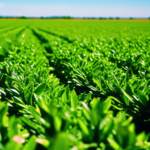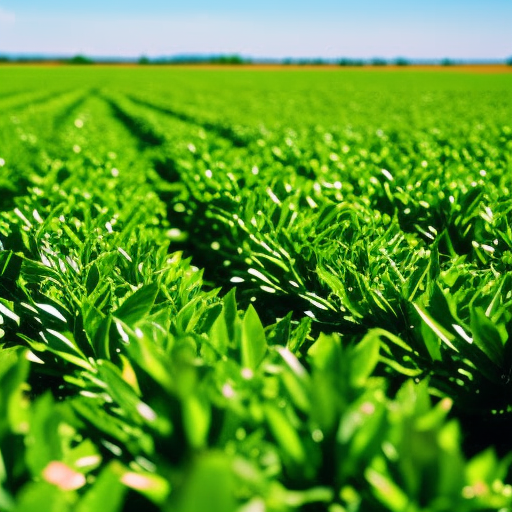Sustainable Agriculture: Promoting Environmental Stewardship and Food Security
Sustainable agriculture is an approach to farming that aims to meet the needs of the present generation without compromising the ability of future generations to meet their own needs. It focuses on three main pillars: environmental health, economic profitability, and social and economic equity. By adopting sustainable practices, farmers can minimize negative impacts on the environment, enhance soil fertility, conserve water resources, and promote biodiversity.
Environmental Benefits of Sustainable Agriculture
One of the key goals of sustainable agriculture is to protect and enhance the natural environment. Farmers employ various techniques to achieve this, such as organic farming, crop rotation, and integrated pest management. Organic farming eliminates the use of synthetic fertilizers and pesticides, reducing the risk of water pollution and soil degradation. Crop rotation helps break pest and disease cycles, improves soil fertility, and reduces the need for chemical inputs. Integrated pest management combines multiple strategies to control pests, including biological control, crop rotation, and the use of resistant crop varieties.
Economic Viability of Sustainable Agriculture
Contrary to the misconception that sustainable agriculture is less profitable, it can actually be economically viable in the long run. By minimizing input costs and reducing reliance on expensive inputs like synthetic fertilizers and pesticides, farmers can lower production costs. Sustainable practices also improve soil health and fertility, leading to higher crop yields over time. Additionally, sustainable agriculture often involves diversifying crops and adopting agroforestry practices, which can provide additional sources of income for farmers.
Social and Economic Equity in Sustainable Agriculture
Sustainable agriculture promotes social and economic equity by ensuring fair treatment of farmers and workers, as well as providing access to nutritious food for all. Fair trade initiatives help small-scale farmers receive fair prices for their products, enabling them to improve their livelihoods and invest in sustainable practices. Sustainable agriculture also emphasizes local food systems, reducing dependence on long-distance transportation and supporting local economies. Community-supported agriculture programs connect consumers directly with local farmers, fostering a sense of community and strengthening the local food system.
Challenges and Innovations in Sustainable Agriculture
While sustainable agriculture offers numerous benefits, it also faces challenges. One major challenge is the transition from conventional farming practices to sustainable ones. Farmers may require technical assistance, financial support, and access to markets to successfully adopt sustainable practices. Another challenge is the need for research and innovation to develop new sustainable farming techniques and technologies. This includes advancements in precision agriculture, agroecology, and the use of renewable energy in farming operations.
To address these challenges, various innovations are being developed. Precision agriculture uses technologies like GPS, remote sensing, and data analytics to optimize resource use and improve crop management. Agroecology combines ecological principles with agricultural practices to create sustainable and resilient farming systems. The use of renewable energy, such as solar panels and wind turbines, can help reduce the carbon footprint of farming operations.
The Future of Sustainable Agriculture
As the world faces increasing challenges related to climate change, population growth, and food security, sustainable agriculture is becoming more important than ever. Governments, organizations, and individuals are recognizing the need to transition towards more sustainable food production systems. Initiatives like the United Nations’ Sustainable Development Goals and the Paris Agreement on climate change highlight the importance of sustainable agriculture in achieving global sustainability targets.
In conclusion, sustainable agriculture offers a holistic approach to farming that balances environmental stewardship, economic viability, and social equity. By adopting sustainable practices, farmers can protect the environment, improve soil health, and promote biodiversity. Sustainable agriculture also has economic benefits, such as lower production costs and increased crop yields. Additionally, it promotes social and economic equity by supporting fair trade and local food systems. While challenges exist, innovations in precision agriculture, agroecology, and renewable energy are helping to overcome these obstacles. As the world faces pressing environmental and food security issues, sustainable agriculture is crucial for a sustainable future.












